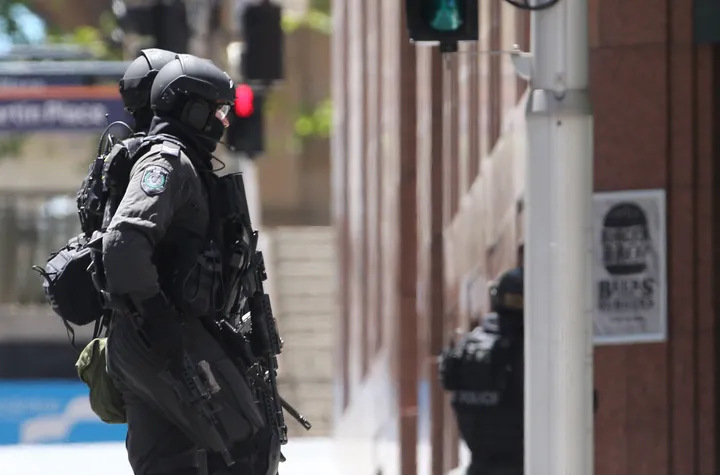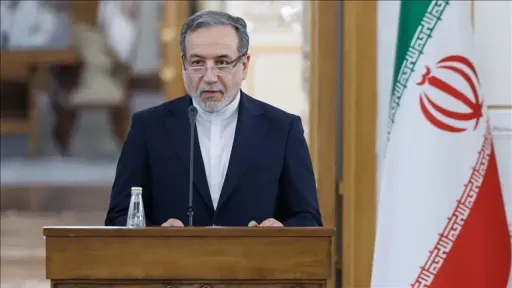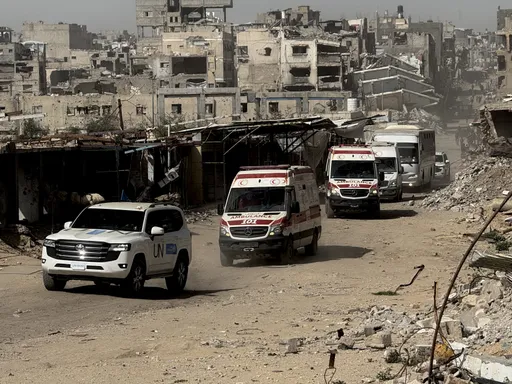Considered to be the world’s superpower, the US is leading in the Covid-19 fatality rate. The death toll in the country has surpassed 50,000 mark and confirmed cases are near to a million, exposing a massive governance failure in containing the spread of the pandemic.
Experts think that Washington’s ill-equipped response resembles that of a failed state, a term Washington's political elite has almost always used to discredit other countries, especially developing ones.
“Every morning in the endless month of March, Americans woke up to find themselves citizens of a failed state,” wrote George Packer, an American author and political analyst.
“With no national plan—no coherent instructions at all—families, schools, and offices were left to decide on their own whether to shut down and take shelter,” Packer analysed the federal government’s inept response to the deadly virus under President Donald Trump.
Since March, millions of Americans have reportedly applied for jobless benefits as the expanding pandemic not only hit citizens’ health but also the welfare of the country, making economists compare the proportions of current financial decline with the Great Depression nearly a century ago.
Joseph Stiglitz, an American economist respected around the world and winner of the Nobel prize about two decades ago for his accomplishments in Economic Sciences, also thinks that the US is in big trouble with its badly-managed virus response, acting like a dysfunctional state.
“If you leave it to Donald Trump and Mitch McConnell [the Republican Senate majority leader] we will have a Great Depression. If we had the right policy structure in place we could avoid it easily,” Stiglitz said in an interview with The Guardian.
The US acts ‘like a third world country’
Stiglitz, who was also the World Bank’s chief economist in the past, likened the US to an impoverished, underdeveloped country as millions of Americans are rushing to food banks to survive in the wake of lockdown measures and vanishing jobs.
“The numbers turning to food banks are just enormous and beyond the capacity of them to supply. It is like a third world country. The public social safety net is not working,” the leading economist observed.
The inequality, which has increasingly become apparent through globalism, is the trademark of many fragile states and developing countries. But the pandemic has also helped expose the stark inequalities in the developed world, particularly, in the US as black neighbourhoods and low-wage labourers suffer from the virus heavily.
But the tragic existence of inequality and unfairness does not seem to be making any real impression on Trump, a billionaire, who used to host a popular TV show ‘The Apprentice’, who sees inequality as an essential part of life.
“Perhaps that’s been the story of life,” Trump responded, when one journalist asked about the contradictory scenes, where professional athletes access testing kits as others were waiting in line.
But Trump’s inadequate response has shown not only the depth of inequality but also how poor the state of the country’s public health system is even after reforms brought by former president Barack Obama with the Affordable Care Act.
“The inequality in the US is so large. This disease has targeted those with the poorest health. In the advanced world, the US is one of the countries with the poorest health overall and the greatest health inequality,” Stiglitz noted.
The predatory American public healthcare system also makes the country vulnerable to the pandemic, which has exploited the US deficiencies in a manner that tens of thousands of its citizens die of curable diseases. The heavily privatised medical sector only treats those who have got health insurance.
According to experts, the US is well below similarly wealthy nations in terms of preparedness to deal with a pandemic as the country has received humanitarian aid from Russia, Taiwan, and the United Nations, being “a beggar nation in utter chaos” according to Packer.
The country’s hospitals in New York City, the symbol of the American dream, have already been overwhelmed by the pressure of coronavirus patients.
"We don't have the machines, we don't have the beds. To think that we're in New York City and this is happening. It's like a third-world country type of scenario. It's mind-blowing," a New York City doctor, who did not want to disclose their identity, told CNN.























